The DIPnet Team consists of the original founders and key members who have played a vital role in shaping the network, organizing workshops, and assembling the database.
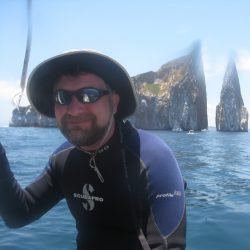
Eric CrandallPennsylvania State University
Eric developed the idea of a collaborative network of biodiversity researchers while a postdoc in Indonesia and the Philippines. His time in the region exposed him to the incredible marine biodiversity at the heart of the Indo-Pacific but he learned that the scientific resources available to researchers and managers in these countries are not proportionate to this biodiversity. He has a long-standing fascination with marine larval dispersal, and its evolutionary and ecological consequences for marine species. He loves sharing this fascination with evolutionary biology and ecology with his students and anyone else who will listen.
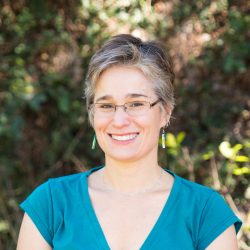
Cynthia RiginosUniversity of Queensland
DIPnet co-founder Cynthia Riginos is an evolutionary biologist by training and loves marine animals (especially fishes and molluscs) but is easily distracted by most taxa. She has long-standing interests in how species traits and landscapes affect gene flow; basically the more species and the greater the geographic coverage, the better! Recycling and re-purposing old data to ask new questions has become a mainstay of Cynthia’s research programme and has naturally led to advocacy for open data.
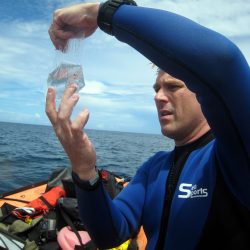
Rob ToonenHawaii Institute of Marine Biology
Rob became involved in the network at the beginning stages when the foundations for DIPnet were being laid and is hosting the NSF RCN grant. Much of his current research focuses on the processes that influence dispersal and recruitment in coastal marine invertebrates, and he is particularly interested in the evolutionary consequences of larval developmental modes among marine invertebrates. In general, he tries to approach his research from an ecological perspective to scale up from genes to individuals to populations, and ultimately to the micro- and macro-evolutionary consequences of the processes that he studies.
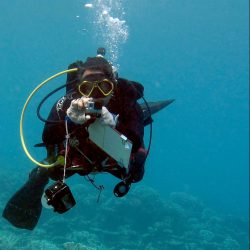
Maria BegerUniversity of Leeds
Maria Beger is a marine conservation scientist interested in spatial conservation planning, environmental management and ecology. Maria’s work aims to improve conservation and management decision-making in coastal areas by developing inter-disciplinary tools and approaches; tackling contemporary issues such as ecological and societal response to change, marine biodiversity and its sustainable use, and figuring out how genetic data can inform conservation. In addition to cross-disciplinary spatial planning, Maria enjoys the challenges and joys of remote coral reef field work; making good use of the fish species catalogue of over 2000 species in her head.
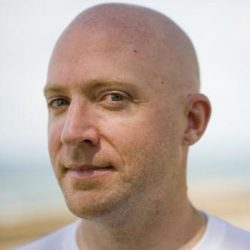
Chris BirdTexas A&M at Corpus Christi
Chris is interested in applying population genetics, phylogenetics, community ecology, statistics, and modeling to aid in fisheries management and marine conservation. He also has a weird thing for limpets.
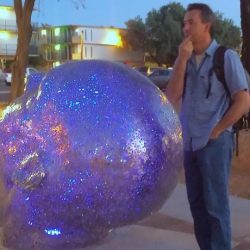
John DeckUC Berkeley and Biocode LLC
John works with computers, code, cows, sheep, chickens, tractors, specimen databases, field information management systems, and in his spare time, thinks about all things physical and how to track them down using persistent identifiers. His training is in environmental planning and biology while being a mostly self-taught programmer. John generally cannot be found where he says he is, but will respond to requests coming through bnhm.berkeley.edu (Berkeley Natural History Museums), github.com/biocodellc (Biocode, LLC), or deckfamilyfarm.com (Deck Family Farm).
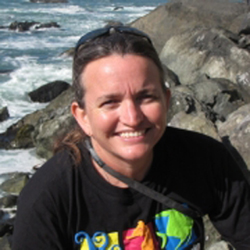
Michelle R. GaitherUniversity of Central Florida
Michelle’s research interests and experience are centered on the evolution, ecology and origin of biodiversity in marine fishes. She combines whole genome sequencing, population genomics, and field-based studies to better understand the roles of geographic isolation, ecological differentiation, and hybridization in the diversification of lineages. In her spare time Michelle loves to get out doors, drink beer and contemplate the futility of existence (simultaneously).
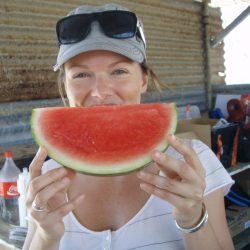
Libby LigginsMassey University
Libby is interested in the generation, maintenance, and changing nature of demographic and biogeographic patterns in the ocean. She always strives to take a fresh approach to ‘the question’, attempting to draw on methods and ideas from other fields of research. Currently, her research is focused on the biodiversity and assembly of tropical-subtropical transitional communities. This includes characterizing marine communities, interspecific interactions, and edge-of-range population demography and local selection. DIPnet suits her thrifty nature - no data will go to waste (recycle) and no potential collaboration will be unfulfilled (we work better together). This helps her sleep at night.
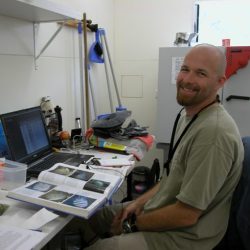
Eric TremlUniversity of Melbourne
Eric Treml is a Lecturer in Marine Biology in the School of BioSciences, University of Melbourne, Australia. His research is focused primarily on the spatial ecology of marine systems, testing hypotheses regarding marine population connectivity and exploring the implications for marine conservation. He uses field surveys, dynamic modelling, spatial analysis, graph theory and population genetic techniques.
